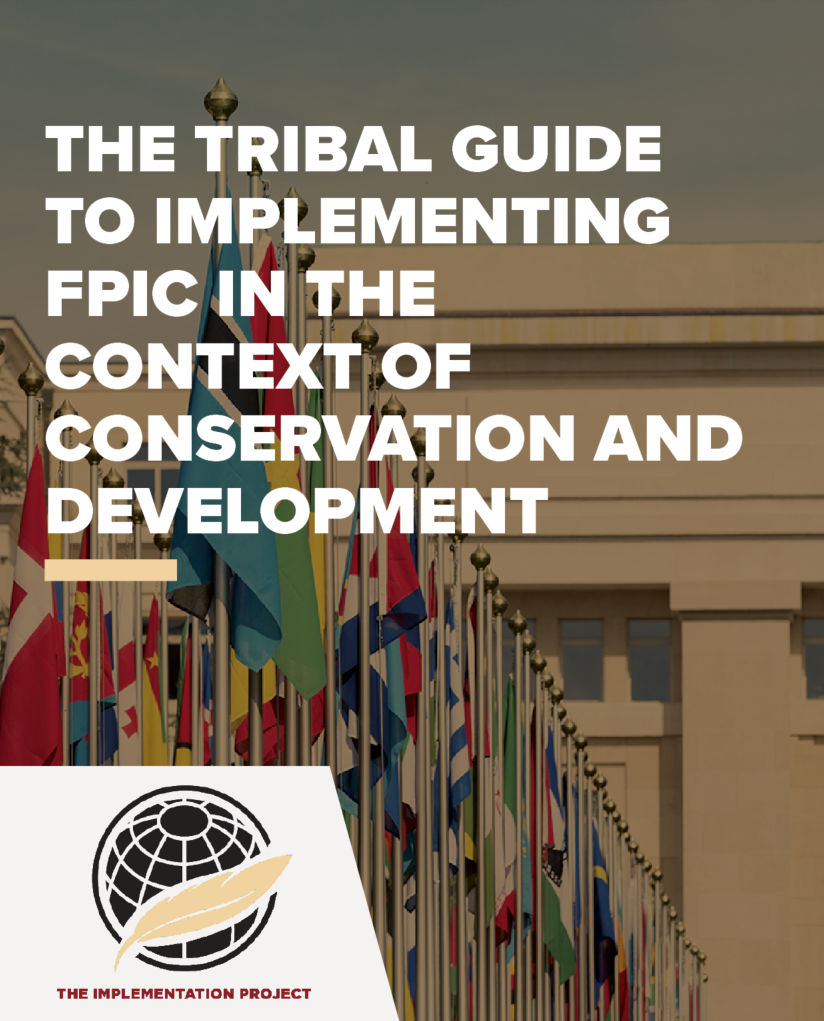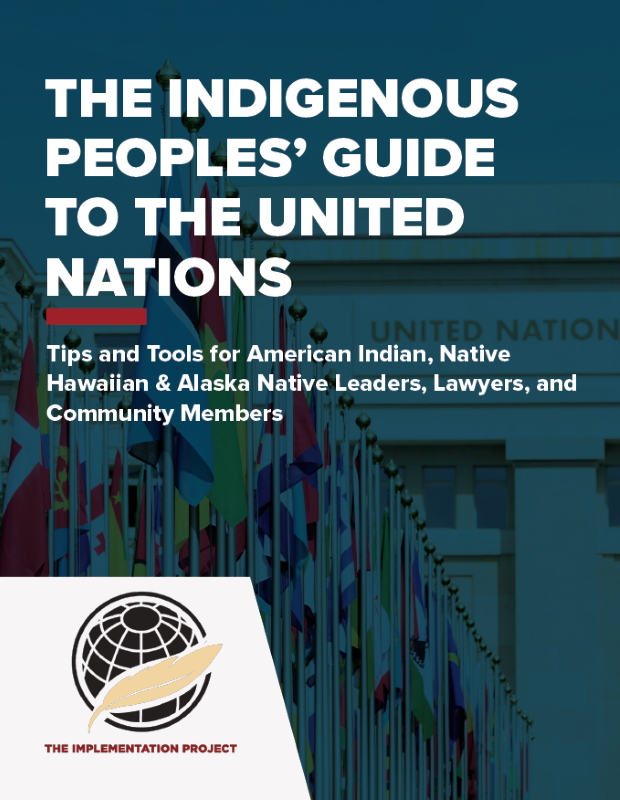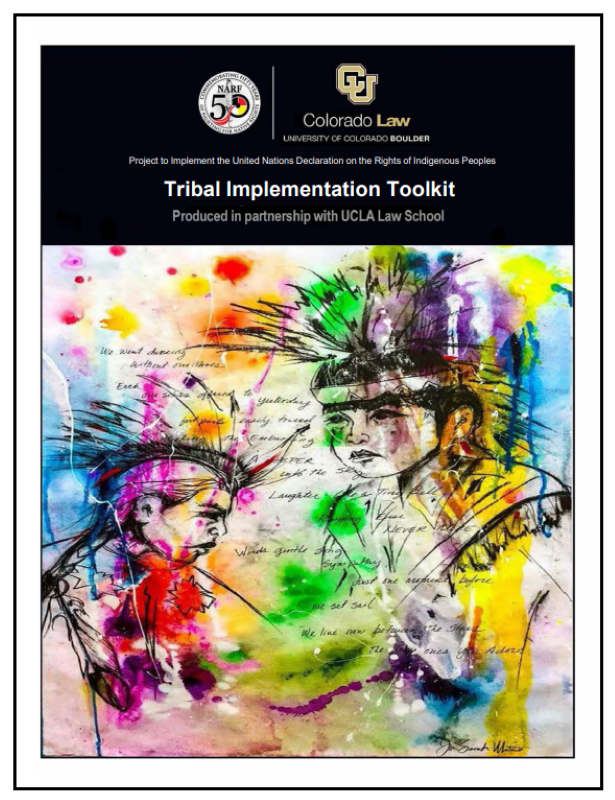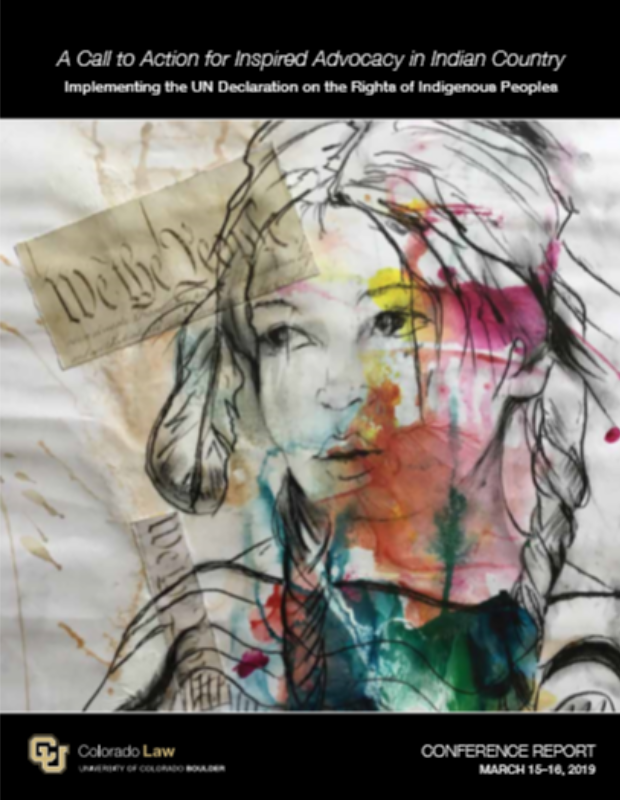In 2007, following decades of advocacy by Indigenous Peoples, the United Nations General Assembly adopted the Declaration on the Rights of Indigenous Peoples.
Today’s challenge is to realize the promises of the Declaration in the lives of Indigenous Peoples. In 2018, the University of Colorado Law School (Colorado Law) and the Native American Rights Fund (NARF) committed to working on this challenge in the context of American Indian, Alaska Native, and Native Hawaiian rights. Together they launched The Implementation Project. The project was born from a conference held at the University of Colorado Law School in Boulder, Colorado, on March 15–16, 2019. Over two days, attorneys, scholars, Tribal leaders, activists, students, and others discussed challenges in federal Indian law and the potential role of the Declaration in advocacy efforts. Collectively, this cohort considered advocacy opportunities in language rights, business and human rights, religious freedoms, cultural rights, Indian child welfare, climate change and environmental policy, as well as technology, media and communications.
Since that time, the project has been developing a unique collection of resources for Triibal leaders as they explore how the UN Declaration can serve their needs and support their priorities.
Publications from The Implementation Project

The Tribal Guide to Implementing FPIC in the Context of Conservation and Development (2025)
The Tribal Guide to Implementing FPIC in the Context of Conservation and Development provides educational information to Tribal governments regarding Free, Prior, and Informed Consent (FPIC), as articulated in the UN Declaration on the Rights of Indigenous Peoples. It focuses on opportunities to use FPIC as a tool to protect Tribal rights and interests in the context of conservation and development.

The Indigenous Peoples’ Guide to the United Nations (2024)
American Indians, Alaska Natives, and Native Hawaiians participate in United Nations processes to advance Indigenous Peoples’ rights both globally and at home. Successful international engagement requires a significant investment of time and energy, undertaken over many years. The Indigenous Peoples’ Guide to the United Nations aims to demystify the institution and give Indigenous leaders, lawyers, and community members the tools to get started.

Tribal Implementation Toolkit (2021)
In 2021, the Implementation Project published its Tribal Implementation Toolkit, in partnership with UCLA School of Law. This Toolkit is intended to assist Tribal leaders, lawyers, and advocates in implementing the UN Declaration.
In addition to the digital version, which features artwork by Joni Sarah White, the project also offer a text-only version more suitable for screen readers or other accessibility aids.

2019 Conference Report on Implementing The Declaration
The Project’s first publication was the 2019 Conference Report on Implementing the UN Declaration on the Rights of Indigenous Peoples, available in the CU Law Review.
The report grew out of the March 2019 conference, “Call to Action in Indian Country,” where the Implementation Project was launched by CU-Law and NARF. The conference featured workshops on cultural rights, environmental advocacy, business and entrepreneurship, Indian child welfare, technology and communications, Indigenous languages, and how to address Indian Law changes in the United States using an international human rights framework. (Watch the recorded conference).
More Resources


